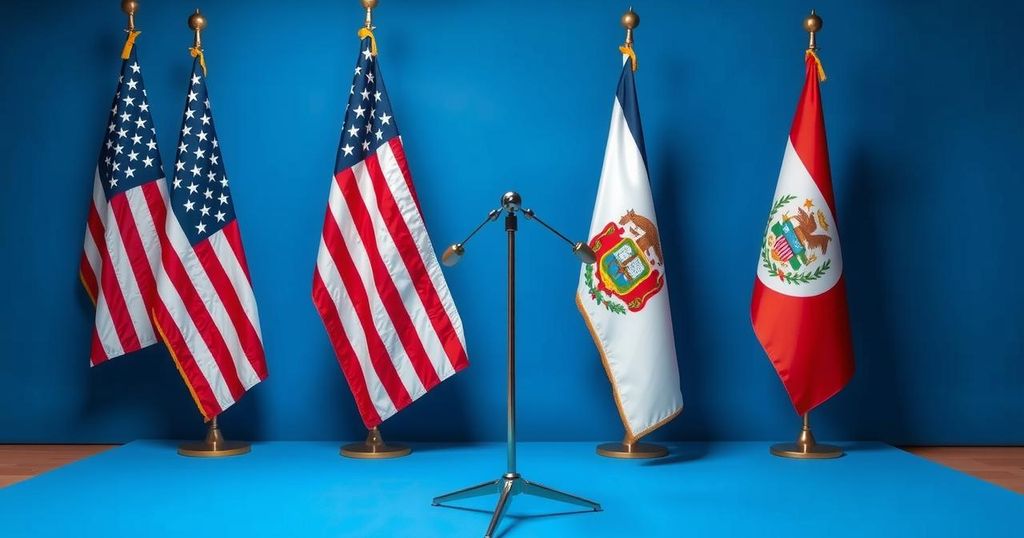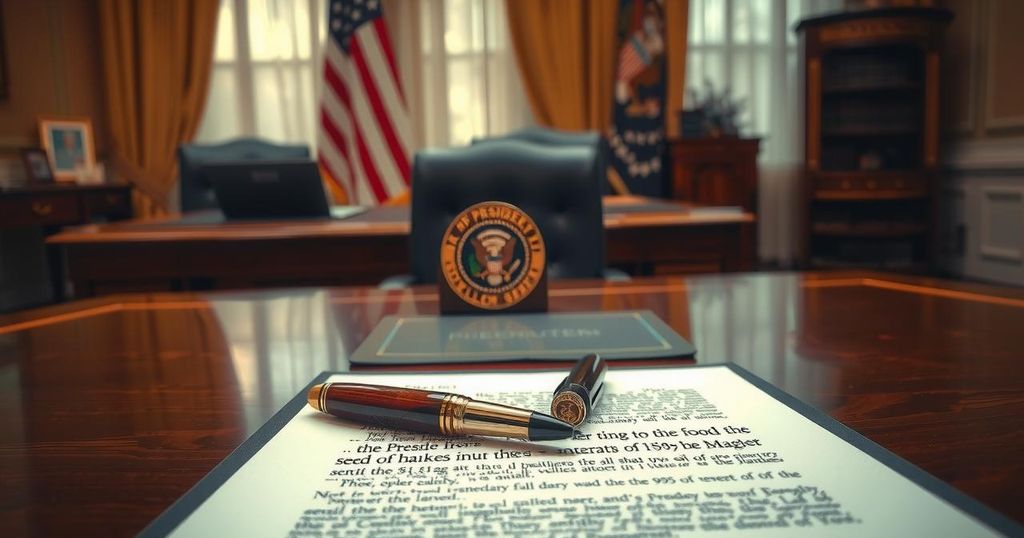World news
ABC NEWS, ABREGO GARCIA, ASIA, BRAZIL, BUKELE, CNN, DISTRICT COURT, EL SALVADOR, HONOLULU, JUDICIARY, JUSTICE DEPARTMENT, LAW, MAN, MARYLAND, NAY, NEW YORK TIMES, NORTH AMERICA, PHILIPPINES, POLITICS, SALVADOR, SOUTH AMERICA, SUPREME COURT RULING, TRUMP, TRUMP ADMINISTRATION, U. S, U. S. DISTRICT COURT, UNITED STATES, WASHINGTON, WHITE HOUSE
David O'Sullivan
0 Comments
Trump Denies Communication with El Salvador on Deportee’s Return
President Trump denies direct communication with El Salvador’s President Bukele about returning Kilmar Abrego Garcia, a migrant mistakenly deported from Maryland. Amid court rulings and reported negotiations, concerns arise over due process and the implications for immigration policy.
President Donald Trump confirmed today that he has not personally communicated with El Salvador’s President Nayib Bukele regarding the return of Kilmar Abrego Garcia, a man mistakenly deported from Maryland. This information comes amid reports of ongoing negotiations between U.S. officials and Salvadoran authorities about Garcia’s case. During a White House press event, Trump acknowledged, “I haven’t spoken to him,” referring to Bukele while leaving the legal matters to his attorneys.
In a recent interview with ABC News, Trump suggested that he could facilitate Garcia’s return quite easily, yet he made it clear he would choose not to do so, despite the Supreme Court’s ruling on April 10 mandating his administration to assist in the process. Trump’s administration has argued that it is ultimately El Salvador’s decision, pointing to Bukele’s earlier comments during an April 14 meeting that suggested he would refuse to return Garcia.
Meanwhile, Secretary of State Marco Rubio, who was present at the Cabinet meeting with Trump, refrained from commenting on the alleged negotiations with Bukele. His rationale? “The conduct of our foreign policy belongs to the President of the United States and the executive branch, not some judge…” This refusal to discuss specifics has left many questions unanswered, particularly after a U.S. diplomatic note reportedly inquiring about Garcia’s return was sent to Salvadoran officials and met with a negative response.
The U.S. District Court in Maryland, which is overseeing Garcia’s legal proceedings, has ordered expedited discovery to be completed by mid-May. Garcia, 29, had been living in Maryland on a work visa when immigration officials detained him earlier this year based on supposed gang ties. Despite a protective order allowing him to stay in the U.S., he was placed on a deportation flight alongside Venezuelan migrants.
Critics, including legal experts and Democratic lawmakers, view this case as emblematic of the broader implications surrounding the potential erosion of due process rights under the Trump administration. Senator Chris Van Hollen, a Maryland Democrat, voiced serious concerns, asserting, “If Donald Trump can ignore court orders and trample over the rights of one man, he threatens the rights of everyone…”
Trump’s administration has maintained an aggressive stance on immigration, emphasizing that Garcia is linked to the notorious MS-13 gang—an allegation fiercely denied by Garcia’s legal counsel. They argue he fled violence in El Salvador at 16 and received the protective order to remain in the U.S. in 2019. As the Trump administration approaches its 100th day in office, its hardline immigration policies remain a polarizing issue; polling shows a division among Americans about his handling of related matters, with a noted fraction believing that Garcia should be allowed to return to the U.S.
As the administration explores deportation agreements with other nations, including a newly announced arrangement with Uzbekistan, the implications of these ongoing developments continue to unfold. A separate court ruling today reaffirmed the imperative for due process for migrants held at Guantanamo Bay, hinting at broader challenges ahead for the administration’s immigration policies.
In summary, President Donald Trump has not communicated directly with El Salvador’s President Nayib Bukele regarding Kilmar Abrego Garcia’s return after his wrongful deportation. The situation highlights critical issues surrounding due process and immigration policy under the Trump administration, with legal ramifications anticipated. As the discourse continues, it raises questions about U.S. foreign relations and the treatment of deported migrants as further rulings and agreements unfold.
Original Source: www.staradvertiser.com




Post Comment